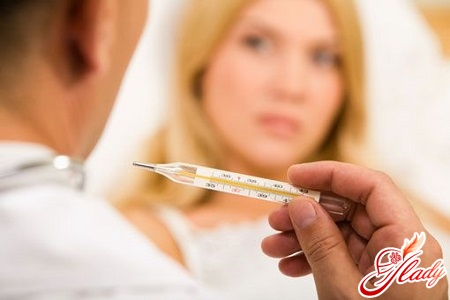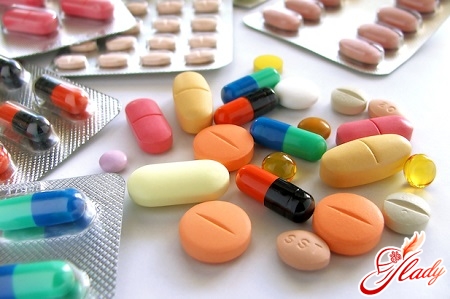
With the onset of cold weather, cases become more frequentdiseases of ARVI (acute respiratory viral infection), or the common cold. According to statistics, more than a million people fall ill with it every year. Children of preschool and school age are most susceptible to infection. Women aged 20 to 30 years get sick more often than men. Many people consider a cold to be a minor illness, endure it on their feet or do not treat it. However, this is a big misconception: it can lead to serious complications (pneumonia, otitis, bronchitis, etc.), and in general it causes a lot of discomfort to the patient. Therefore, it is best not to endure a cold on your feet, but to ensure bed rest for several days. And, of course, you need to know how to defeat this ailment. Then the disease will pass quickly and without complications.

Causes, symptoms and consequences of colds
It is very important to know where it might come fromthe danger of infection, because the easiest way is to prevent infection and not get sick at all. Why then are so many people still unable to protect themselves and get sick? Many of them most likely either do not know or do not attach due importance to the sources of infection. Let's consider where the disease can threaten from.
- Direct contact with a sick person
ARVI infection is transmitted by airborne dropletsby means of contact, that is, you can become infected by kissing, by talking at close range, if the sick person sneezes on you, or if you use his personal things. Therefore, it is best to limit communication with the person until he recovers. Likewise, if you become infected, treat other people's health with respect and do not expose people to the risk of becoming infected.
- Indirect contact with a sick person
The human body is so susceptible tovirus, that you can get infected simply by holding a hand in a public place that a sick person held before you. Therefore, it is imperative to protect yourself as much as possible from contact with a sick person, and also thoroughly wash your hands after leaving the street. It would seem that these are the rules that everyone has known since childhood, but in fact they are an effective prevention of infection. The main syndrome that accompanies a cold is intoxication. With a common cold, which is not complicated by consequences, there is a fairly moderate intoxication: damage to the upper respiratory tract. In this case, the symptoms depend on the type of pathogen: with rhinovirus infection, a person is affected by rhinitis, with adenovirus - nasopharyngitis, keratitis or conjunctivitis, with parainfluenza, the larynx is affected, with flu, tracheitis is observed, with respiratory syncytial infection - bronchitis. In addition, there is a headache, watery eyes, the temperature may rise, general weakness, fatigue, and lethargy may develop. In any case, even if you have a common cold, you should start treatment, because a cold can very quickly turn from a simple form into a complicated one, which will be much more difficult to cure, and the recovery process will take a lot of time. Colds are treated only with cold medications. Since ARVI manifests itself with several symptoms, doctors prescribe several drugs that are designed to eliminate the causes of each symptom separately. Thus, drugs used for colds can be divided into several groups:
- non-steroidal anti-inflammatory drugs;
- Combined anti-inflammatory drugs against colds;
- drugs that are used against cough;
- drugs that are used against the common cold;
- means to improve immunity.
Next we will look at each type of medicine.drug in more detail. However, remember that it is better not to self-medicate: you can simply get confused in the abundance of products offered by modern pharmaceuticals and choose a drug that is not quite right for you, which ultimately may not give the desired result.
Nonsteroidal anti-inflammatory drugs against colds
One of the leaders among drugs againstcolds, which has already become a classic, is salicylic acid and its derivatives. However, do not rush to use, for example, the well-known acetylsalicylic acid, since in some cases salicylic acid preparations can cause complications. In addition, in some cases this remedy can cause an allergic reaction. Another classic anti-inflammatory drug that is widely used in the treatment of colds in patients of different ages is paracetamol preparations. They are considered quite safe and harmless, so they can be safely used not only by adults but also by children. Paracetamol reduces temperature well, has an analgesic effect. However, compared to salicylic acid, it has less pronounced anti-inflammatory properties. Non-steroidal drugs are also contained in combination cold remedies, which will be discussed below.
Combined anti-inflammatory drugs against colds
Combination drugs are very populargreat success, since they contain not only non-steroidal drugs, but also other substances that increase the effectiveness of treatment. Thus, the composition of combined anti-inflammatory drugs includes paracetamol and ascorbic acid (vitamin C). It increases the body's resistance, does not allow histamine to be released from tissues and stimulates the formation of interferon and antibodies. In addition, with a cold, there is an increased need for vitamin C in the body. This need persists for another 3 weeks after recovery. But the amount of vitamin C contained in combination drugs is not enough to cover the body's daily need for it, so it is recommended to take additional vitamin C. Combination drugs often include vasoconstrictors and antihistamines. Thus, a common vasoconstrictor component, which is often included in combination drugs, is caffeine. In addition, it enhances the effect of paracetamol and stimulates the body. Antihistamines help reduce swelling of the nasal mucosa, make breathing easier and reduce lacrimation. Histamine is the main mediator of inflammation, it is what causes capillaries to dilate, causing symptoms such as runny nose, cough, sneezing, nasal congestion and lacrimation. Therefore, pheniramine maleate, chlorpheniramine maleate and similar drugs are indicated for colds. They help relieve unpleasant symptoms well. Adrenomimetics (for example, pseudoephedrine, phenylephrine) also constrict blood vessels and reduce swelling of the mucosa. Amizon deserves special attention. This is a drug from the non-steroidal group, which has pronounced antipyretic, anti-inflammatory, analgesic properties.
Means against cold
The most difficult symptom of a cold for manypeople is a runny nose. And indeed, it is because of it that tears flow, the nose is stuffy, there is a feeling of inflamed and overdried mucous membrane and a general state of exhaustion. If a runny nose is not treated, it can develop into more severe forms (sinusitis), which are much more dangerous to health and much more difficult to treat. Therefore, it is better to pay attention to a runny nose as soon as it has just started. Basically, doctors prescribe drugs from the group of alpha-adrenergic receptor stimulants against a runny nose. These include, for example, tetryzoline, naphazoline, oxymetazoline, xylometazoline, etc. These drugs have a positive effect on the nasal mucosa: they reduce swelling and hyperemia, the amount of nasal discharge, as a result of which the patient breathes easier, and the general condition improves. Essential oils (in pure form or mixtures) are often used to treat a runny nose. Essential oils of mint, eucalyptus, thyme, cedar, etc. can achieve a good effect. They are used in the form of drops, cream, ointment or inhalation, depending on the patient's preferences.
Preparations against cough
Often, when a patient has a cold, he or she suffers from a cough.In this case, expectorants are used, which change the properties of sputum and facilitate its discharge. They are distinguished by the mechanism of action on the body. Reflex action drugs help to liquefy sputum and make it easier to expectorate. Such drugs should be used every 2 hours, since, on the one hand, their effect is short-lived, and on the other - a large dose of the drug can cause vomiting. Therefore, small doses of the drug are prescribed for frequent use. Such drugs include marshmallow root, licorice root, elecampane root decoction, plantain leaf infusion, etc. Resorptive drugs are widely used. They also help to liquefy sputum and facilitate its rejection. Drugs of this group include eucalyptus tincture, eucalyptus oil, thyme, anise, etc. Mucolytic drugs help to liquefy and easily expectorate sputum. This group includes ribonuclease and chymotrypsin. These drugs can cause allergies and bleeding, so they should be used with caution. Amino acids with the SH group have also shown effectiveness in combating cough. But they have a serious side effect: in bronchial asthma, they can cause bronchospasm, so bronchodilators must be used before inhalation. Mucoregulators are new-generation mucolytic drugs. They are effective and well tolerated, although rare side effects are not excluded: skin rash, dysfunction of the digestive system. Mucus rehydration agents make sputum less viscous and thus facilitate its expectoration. These agents include alkaline mineral waters, 2% sodium chloride for inhalation or 0.5-2% sodium bicarbonate for inhalation.
Preparations for boosting the immune system
It is very important to help the immune system copewith a virus, because it is thanks to immunity that we do not get sick during epidemics and thanks to it we are cured if our immune system does not cope with the attack of a viral infection. Various drugs are used as immunostimulants. Herbal remedies have proven themselves to be excellent. They activate the body's natural defenses, which is exactly what is needed to fight colds. The leader among all natural immunomodulators is purple echinacea. In addition, it has antibacterial, antifungal and antiviral properties. It is available in the form of tablets and alcohol tincture.









